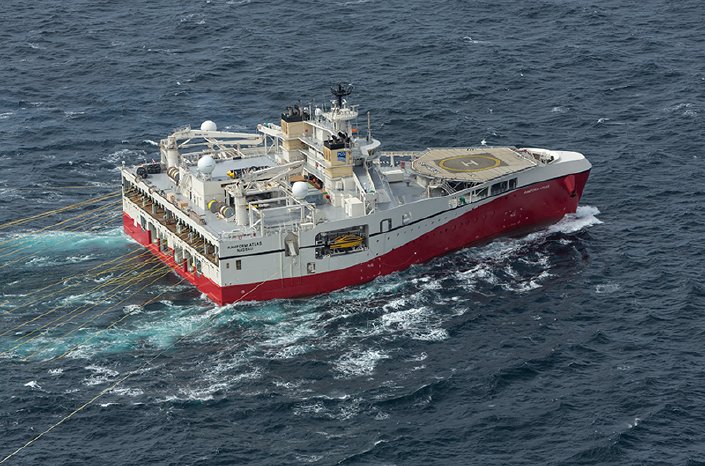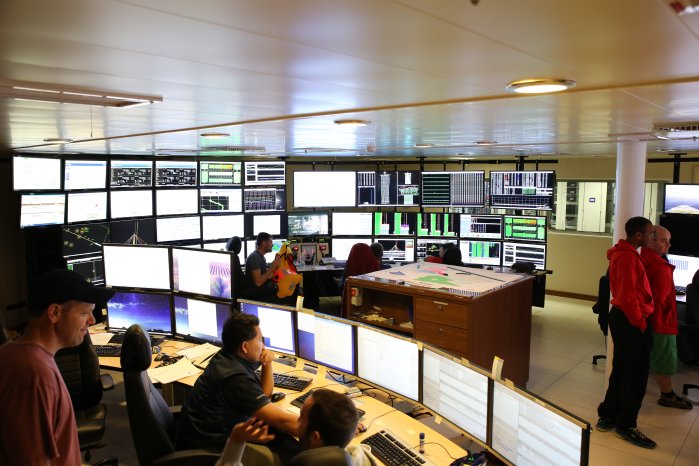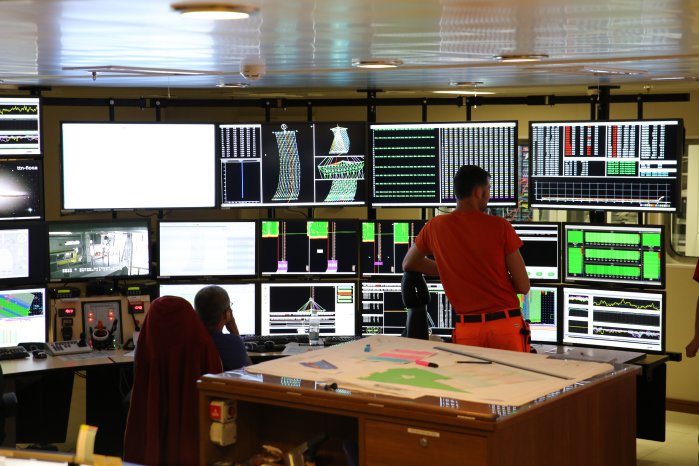Its vessels operate in some of the most inhospitable and remote parts of the world's oceans and are built to withstand the harshest imaginable conditions. Onboard sensing and data processing equipment must continue operating whatever the condition for periods of up to 150 days on a single voyage.
Two new Ranform Titan Class seismic vessels have just been launched. Draco tera KVM matrix switches provide connection between computers housed in a safe, environmentally-controlled 'rack room' on the lower deck of the vessel and operators' terminals several deck levels above. The switches allow scientists and geologists to connect to specific computers to access the data they need.
The operators are spread around different decks but all need to be able to instantly connect to the appropriate computer and access data with no switching or transmission delay; a task undertaken by the Draco tera switches with ease. Each operator can change the source computer quickly and easily using dedicated keyboard function keys, whilst the system administrator can manage the full system from his own terminal, setting access restrictions and defining routes as necessary.
"The Draco tera switches provide a highly stable and robust platform and were straightforward to integrate, requiring no additional technical support," said Asbjørn Olsen, Chief Observer, PGS Geophysical. "This provides a high degree of confidence that they will be reliable and easy to support at sea."
Following the positive experience with IHSE switches, PGS is currently planning the construction of two new vessels with identical KVM systems in 2016.
The full range of IHSE KVM products will be available for demonstration at IBC in Amsterdam, September 11-15, 2015. Booth 7.B30.




